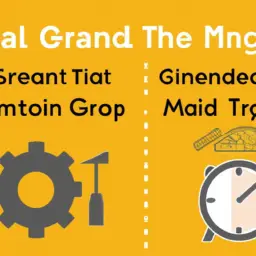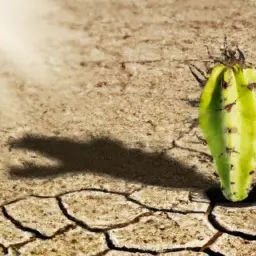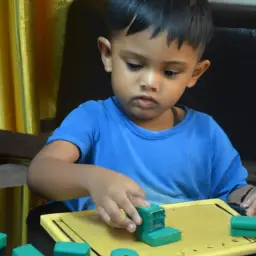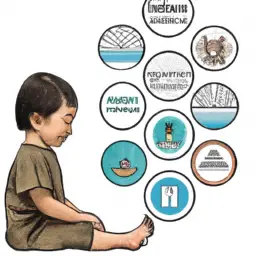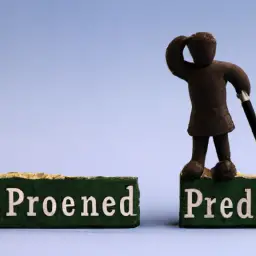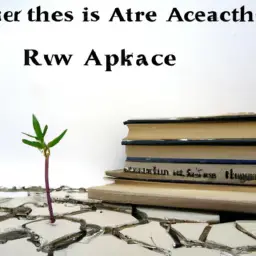Do you ever feel like you lack the perseverance to achieve your goals? Or struggle with understanding and managing your own emotions? The good news is that these two traits, grit and emotional intelligence, are closely connected and can be developed together to enhance your overall success and well-being.
Grit refers to the ability to persevere and maintain passion and perseverance towards long-term goals, even in the face of obstacles and failure.
Emotional intelligence, on the other hand, is the capacity to recognize and manage your own emotions, as well as understand and empathize with the emotions of others.
While these may seem like separate concepts, research has shown that they are actually closely intertwined and can work together to enhance success in both personal and professional realms.
So, let’s delve into the connection between grit and emotional intelligence and learn how to develop these traits to achieve greater success in life.
Key Takeaways
- Grit and emotional intelligence are both essential for success and well-being in education and the workplace.
- Cultivating a growth mindset, embracing failure, and practicing self-reflection regularly are important for developing both grit and emotional intelligence.
- Empathy training and building strong relationships can enhance an individual’s ability to persist through challenges and setbacks.
- Different cultures have different values and beliefs around grit and emotional intelligence, and personal growth and development can be prioritized by setting goals and seeking support from others.
Understanding Grit and Emotional Intelligence
You gotta understand that grit and emotional intelligence are like two peas in a pod – if you don’t have one, the other won’t get you very far. Both are equally important in education and the workplace.
Grit is the ability to persevere and overcome obstacles, while emotional intelligence is the ability to understand and manage your own emotions and the emotions of others.
In education, grit is essential for success. Students who have grit are more likely to push through difficult assignments, study harder, and persevere through setbacks.
Emotional intelligence is also important in education because it helps students to manage their emotions, communicate effectively, and build positive relationships with their peers and teachers.
In the workplace, employees who have grit are more likely to succeed and advance in their careers. Those with emotional intelligence are better able to collaborate with others, manage conflicts, and adapt to changing situations.
Together, grit and emotional intelligence are a powerful combination that can lead to success in all areas of life.
The Link Between Grit and Success
When pursuing success, it’s essential to cultivate a mindset that embraces failure as a necessary step towards achieving your goals. The link between grit and success lies in the importance of perseverance. You must be willing to face setbacks and obstacles, and keep pushing forward despite them. This is where grit comes in.
Grit is the ability to maintain your passion and perseverance over the long haul, even when faced with adversity. The impact of resilience on success cannot be overstated. Resilient individuals are able to bounce back from setbacks and failures with renewed determination. They are able to learn from their mistakes and use that knowledge to make better decisions moving forward.
Developing emotional intelligence is critical in building resilience. By learning to regulate your emotions, you can avoid being overwhelmed by setbacks and remain focused on your goals. In short, cultivating grit and emotional intelligence can help you develop the resilience needed to achieve success in all areas of life.
- Embrace failure as a necessary step towards achieving your goals
- Be willing to face setbacks and obstacles, and keep pushing forward despite them
- Develop emotional intelligence in order to regulate your emotions and avoid being overwhelmed by setbacks
- Use setbacks and failures as opportunities to learn and make better decisions moving forward.
How Grit Enhances Emotional Intelligence
You might be wondering how grit enhances emotional intelligence. Well, there are two key points to consider: the role of self-awareness in grit and the connection between grit and empathy.
Self-awareness is crucial in developing grit because it helps you identify your strengths and weaknesses. This, in turn, allows you to set realistic goals and work towards achieving them.
Grit and empathy go hand in hand, as individuals with high levels of grit tend to be more empathetic towards others. This is a key component of emotional intelligence.
The Role of Self-Awareness in Grit
As individuals become more self-aware of their emotions and thought patterns, they are better equipped to develop grit and persist through challenges. This is because self-awareness allows individuals to identify their strengths and weaknesses, which in turn helps them set realistic goals and develop effective strategies to achieve those goals. Moreover, self-awareness fosters a sense of mindfulness, which is essential in developing grit. One way to cultivate self-awareness is through self-reflection. Taking time to reflect on your thoughts, emotions and actions can help you identify patterns and tendencies that may be hindering your progress. By doing so, you can develop a better understanding of yourself, which can help you build resilience and perseverance.
To better understand the relationship between self-awareness and grit, consider the following table:
| Benefits of Self-Awareness | Importance of Self-Reflection | How it Relates to Grit |
|---|---|---|
| Helps you identify your strengths and weaknesses | Allows you to learn from your mistakes | Helps you set realistic goals and develop effective strategies |
| Fosters a sense of mindfulness | Encourages personal growth | Helps you build resilience and perseverance |
| Improves decision-making skills | Enhances emotional intelligence | Develops a better understanding of oneself |
By developing self-awareness through self-reflection, you can improve your emotional intelligence, which is a key component of grit. Emotional intelligence allows you to regulate your emotions, empathize with others and communicate effectively, all of which are important in achieving long-term success. So take some time to reflect on your thoughts and emotions, and start building your grit today.
The Connection Between Grit and Empathy
Developing grit involves understanding and relating to others’ experiences, as empathy plays a crucial role in building resilience and perseverance. Empathy training can help you become more aware of other people’s feelings and perspectives, which can enhance your ability to persist in the face of challenges.
When you can see things from someone else’s point of view, it becomes easier to handle difficult situations and stay focused on your goals.
Moreover, grit in relationships is also important for success. When you have strong relationships with others, you have a support system that can help you through tough times. By showing empathy, you can build trust and respect with others, which can help you develop meaningful connections.
When you have people in your life who believe in you and encourage you to keep going, it makes it easier to stay committed to your goals. Therefore, developing empathy and building strong relationships can help you develop grit and achieve greater success in all aspects of your life.
Developing Grit and Emotional Intelligence
To build both grit and emotional intelligence, it’s important to cultivate a growth mindset and practice self-reflection regularly. A growth mindset will help you see challenges as opportunities for growth and learning, which is essential for building resilience and perseverance. Meanwhile, self-reflection allows you to understand your emotions better and develop a deeper sense of self-awareness, which is crucial for developing emotional intelligence.
Here are four ways to cultivate a growth mindset and practice self-reflection regularly:
-
Embrace challenges: Instead of avoiding challenges, welcome them as opportunities to learn and grow. This mindset will help you build resilience and perseverance in the face of adversity.
-
Learn from your mistakes: Instead of dwelling on your mistakes, use them as opportunities to learn and improve. This mindset will help you develop a growth mindset and a deeper sense of self-awareness.
-
Practice mindfulness: Take a few minutes each day to sit quietly and reflect on your thoughts and emotions. This practice will help you develop a deeper sense of self-awareness and emotional intelligence.
-
Seek feedback: Ask for feedback from others and be open to constructive criticism. This mindset will help you learn and grow from others’ perspectives and develop stronger relationships with those around you.
Applying Grit and Emotional Intelligence in Daily Life
You can integrate resilience and self-awareness into your everyday life by embracing challenges, learning from your mistakes, practicing mindfulness, and seeking feedback from others. These are practical applications of grit and emotional intelligence that can help you navigate real life scenarios. For example, when faced with a difficult task, instead of giving up or becoming overwhelmed, you can use your grit to persevere and push through obstacles. By also using your emotional intelligence, you can stay self-aware of your thoughts and emotions, and adjust your approach as needed. This combination of resilience and self-awareness can help you achieve your goals and improve your overall wellbeing.
To further illustrate the connection between grit and emotional intelligence in real life scenarios, consider the following table:
| Grit | Emotional Intelligence | Real Life Scenario |
|---|---|---|
| Persistence in the face of challenges | Recognizing and managing your own emotions | Completing a difficult project despite setbacks and frustration |
| Passionate pursuit of long-term goals | Empathizing with others and building strong relationships | Resolving conflicts with a coworker or loved one through active listening and empathy |
| Resilience in the face of failure or criticism | Using effective communication and social skills | Delivering a presentation or speech with confidence and clarity |
By incorporating grit and emotional intelligence into your daily life, you can improve your ability to handle challenges and build meaningful connections with others. These skills are not only beneficial in personal and professional settings, but can also lead to greater personal fulfillment and happiness.
The Future of Grit and Emotional Intelligence
Now that you’ve learned how to apply grit and emotional intelligence in your daily life, it’s time to think about the future.
With technology advancing at a rapid pace, it’s important to consider how it will impact our ability to cultivate grit and emotional intelligence. On one hand, technology can provide us with new tools and resources to help us develop these skills. For example, mindfulness apps and online courses can help us become more self-aware and emotionally intelligent.
On the other hand, technology can also be a distraction that pulls our attention away from developing these skills. Social media, for instance, can be addictive and may prevent us from focusing on our goals and building resilience.
Another important factor to consider is the role of culture in shaping grit and emotional intelligence. Different cultures have different values and beliefs, which can impact how individuals approach challenges and setbacks.
For example, in some cultures, failure is seen as a learning opportunity and a necessary step towards success. In others, failure is viewed as a source of shame and embarrassment. As our society becomes more diverse and globalized, it’s important to recognize and respect these cultural differences in order to build stronger relationships and promote a growth mindset.
Ultimately, the future of grit and emotional intelligence will depend on our ability to adapt to these changes and continue to prioritize these skills in our personal and professional lives.
- Embrace technology as a tool for growth, but be mindful of its potential distractions.
- Recognize and respect cultural differences in values and beliefs around grit and emotional intelligence.
- Prioritize personal growth and development by setting goals and practicing self-reflection.
- Surround yourself with supportive people who encourage you to persevere through challenges.
- View setbacks and failures as opportunities for growth and learning.
Frequently Asked Questions
What is the definition of grit and emotional intelligence?
When it comes to developing grit and emotional intelligence, it’s important to understand their definitions.
Grit can be defined as a combination of passion and perseverance towards achieving long-term goals, especially in the face of obstacles or failures.
On the other hand, emotional intelligence is the ability to recognize, understand, and manage your own emotions, as well as the emotions of others.
By mastering these skills, you can increase your resilience, adaptability, and overall success in life.
So, whether you’re looking to improve your academic or professional performance, or simply want to enhance your personal relationships, developing grit and emotional intelligence can help you achieve your goals and thrive in any situation.
How can one develop grit and emotional intelligence?
So, you wanna know how to develop grit and emotional intelligence? Well, there are some practical tips you can try out.
For grit, start by setting specific goals and breaking them down into smaller tasks. This will give you a sense of progress and keep you motivated. Additionally, try to view challenges as opportunities to grow and learn, rather than obstacles to overcome.
As for emotional intelligence, practice active listening and empathy in your daily interactions with others. Take time to reflect on your own emotions and how they impact your behavior.
Real life examples of developing grit might include marathon training or learning a new skill, while examples of emotional intelligence could include conflict resolution or improving communication in a relationship.
Remember, developing these traits takes time and effort, but the benefits are well worth it.
Can grit and emotional intelligence be taught or are they innate qualities?
When considering the nature vs. nurture debate, it’s difficult to determine whether grit and emotional intelligence are innate qualities or if they can be taught.
While some people may be naturally more resilient or empathetic, it’s also possible to develop these qualities through practice and experience.
In terms of their importance in the workplace, both grit and emotional intelligence can be incredibly valuable skills.
Grit allows individuals to persevere through difficult tasks and setbacks, while emotional intelligence allows for effective communication and relationship-building with colleagues and clients.
So, whether these qualities are innate or learned, they can greatly impact one’s success in the professional world.
Are there any negative consequences to having high levels of grit and emotional intelligence?
If you have high levels of grit and emotional intelligence, there may be some downsides to consider. Burnout and emotional exhaustion are two potential negative consequences.
While these qualities can be beneficial in achieving goals and managing emotions, they can also lead to overworking and neglecting self-care. It’s important to recognize when you need to take a break and prioritize your well-being.
Remember that having grit and emotional intelligence doesn’t mean you have to constantly push yourself to the limit. Take care of yourself so that you can continue to perform at your best.
How do grit and emotional intelligence impact relationships with others?
When it comes to relationships with others, building resilience and fostering empathy are critical factors that can be impacted by both grit and emotional intelligence. By having a high level of grit, you’re better equipped to persevere through challenges, leading to a stronger sense of resilience and determination that can positively impact your relationships.
Emotional intelligence, on the other hand, helps you to better understand and manage your own emotions and those of others, leading to greater empathy and compassion in your interactions. Together, these two traits can help you build stronger, more meaningful relationships with those around you.
Conclusion
You’ve learned that grit and emotional intelligence are two important traits that can greatly impact your success in life. Grit allows you to persevere through challenges and setbacks, while emotional intelligence helps you understand and manage your own emotions as well as those of others.
By developing both of these traits, you can become more resilient, adaptable, and effective in achieving your goals. To build your grit and emotional intelligence, it’s important to practice self-awareness, self-regulation, and empathy.
This can involve setting challenging goals, seeking feedback, and reflecting on your experiences. By applying these skills in your daily life, you can improve your relationships, work performance, and overall well-being.
As you continue to grow and develop your grit and emotional intelligence, you’ll be better equipped to face any obstacles that come your way and achieve your full potential.


































